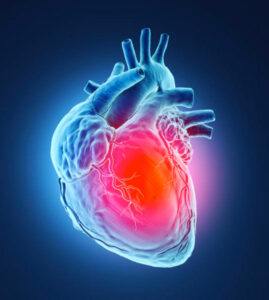
According to the Centers for Disease Control and Prevention (CDC), heart disease is on the rise in the United States. In fact, about one in every four deaths is a result of heart disease [1]. With this in mind, it’s more crucial than ever to stay on top of your health and be proactive when it comes to your heart.
The Proactive Approach to Heart Health
The usual recommendations from doctors to improve your cardiovascular health include getting regular exercise, improving your diet, avoiding harmful habits such as smoking, and living a less stressful lifestyle. All these things combined will help to lower your risk of heart disease, heart attack, and other heart-related health issues.
Apart from that, what else can you do to be more proactive with your heart health? Another vital thing you should do is be more aware of the current state of your heart and arteries. By knowing where you stand, you’ll understand how high your risk is of heart attack and other heart problems, and how aggressively you should change your lifestyle. This is where your coronary calcium score comes in.
Your Coronary Calcium Score
Using a new low-dose Siemens CT scanner, the medical professionals at Preventative Diagnostic Center can get a look at the health of your heart and arteries by detecting calcium. When calcium is found in your arteries, it’s an indication there is plaque building up and restricting the blood flow throughout your body. This plaque will harden over time, or calcify, which is very dangerous and can lead to angina, blood clots, coronary artery disease, and heart attack.
A non-invasive CT scan will give you your coronary calcium score as a measurement of your heart health. The higher your coronary calcium score, the higher your risk of a heart attack. The earlier you can detect dangerous calcium levels in your arteries, the sooner you can seek treatment and possibly reverse some of the damage. You’ll also have time to change unhealthy habits and reduce the chance of serious cardiovascular problems from happening in the future.
What is a Coronary Calcium Scan?
Also known as a heart scan, a coronary calcium test is done using a CT scan to measure the level of calcified plaque present in the arteries. Before CT scans were available, it was almost impossible to detect arterial plaque without an invasive procedure. Now with the use of a CT scan, calcium will show up as specks of light that can be counted and measured without risky surgery.
CT scanners use X-ray technology called multi-slice computerized tomography (CT) to take a series of images. These multiple images are then combined to create a final 3D image that doctors use to get a detailed look inside the body. However, some patients are hesitant to jump into a CT scanner because they’ve heard of the risks associated with CT scan radiation.
What is a Low-Dose CT Scan?
At high levels or with prolonged exposure, radiation can damage cells and put patients at a higher risk of cancer and other issues. Most CT scans have to use high doses of radiation to produce your coronary calcium score, but there are special low-dose machines that dramatically reduce the risks of radiation exposure.
To give you an idea of how exclusive these machines are, the low-dose Siemens SOMATOM go.All CT scanner at Preventative Diagnostic Center in Las Vegas is the newest Siemens of its kind in the entire state of Nevada. It creates high-quality images using the least amount of radiation possible, so patients can feel more comfortable getting their calcium score. The Siemens CT Scanner is able to calculate the lowest possible radiation necessary to conduct each patient’s scan. Receiving a CT scan in a low-dose scanner significantly reduces the radiation exposure risk when compared to an older standard CT scanner.
What Happens During a Coronary Calcium Scan?
When visiting a medical facility to measure your coronary calcium score with a heart scan, patients are often more at ease when they know what to expect. The good thing is you already know a CT scan is a non-invasive procedure, and you won’t have to undergo surgery or use sedation to get your calcium score.
You simply wear loose fitting clothes to make it easier for the CT scan to capture images of your heart and arteries. The CT technologist will apply small patches to your chest and sides that connect to an EKG machine. From there, you’ll be asked to lie still on your back on the CT table so the scanner can begin the imaging process. The entire CT scan is completely painless, requires no medications or dye, and can be done in about 15 minutes or less with an actual scanning time of less than 30 seconds.
Get Your Coronary Calcium Score in Las Vegas
If you want to take control of your heart health, the best way to prevent future issues is to stay informed and be proactive. Preventative Diagnostic Center in Las Vegas provides patients with the technology needed to help maintain or improve heart health with a low-dose, non-invasive CT scan that can measure a person’s coronary calcium score.
To learn more about our preventative CT scan services and how we can partner with you on your journey towards a healthier life, contact our team for more information.
Sign up to our Newsletter
(We do not share your data with anybody, and only use it for its intended purpose)
